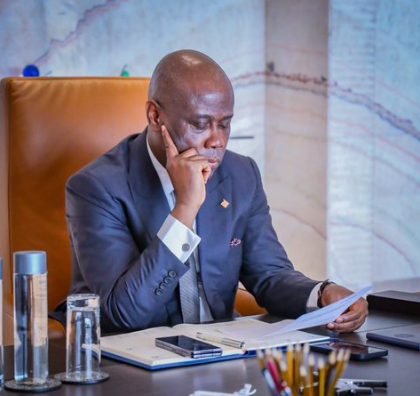In the aftermath of the devastating helicopter crash involving Herbert Wigwe, the Group Chief Executive Officer (GCEO) of Access Holdings Plc, the National Transportation Safety Board (NTSB) in the United States has provided an update on the incident.
On Friday, reports emerged of the fatal crash, which claimed the lives of Herbert Wigwe, his wife Chizoba, his son, and their lawyer, Abimbola Ogunbanjo. The helicopter was en route to Las Vegas when it tragically crashed near the border between Nevada and California at approximately 10:12 PM local time.
Initially, the US Federal Aviation Administration (FAA) announced its involvement in the investigation but clarified that the NTSB would take the lead.
During a media briefing held on Saturday at 6 PM Pacific time (3 AM Nigerian time on Sunday), Michael Graham, a board member of the NTSB, provided preliminary information on the ongoing investigation. He stated that officials were present at the crash site to collect perishable evidence.
Graham emphasized that the team was thoroughly reviewing all available evidence and considering various factors to establish the probable cause of the crash. Although the details were still preliminary, witness accounts indicated that wintry weather conditions likely played a role in the accident.
The helicopter had a total of six individuals on board, including two crew members and four passengers, all of whom tragically lost their lives. Graham noted that the crew consisted of a pilot in command and a safety pilot, and the flight was operated by Orbic Air LLC as a Part 135 charter flight.
Unfortunately, the helicopter did not possess a cockpit voice recorder or a flight data recorder, as these recording devices were not mandatory for this particular type of aircraft.
Graham further explained that the NTSB’s investigation would encompass several areas, including the airworthiness of the helicopter, its maintenance and structure, flight operations, meteorological conditions, and air traffic control.
The FAA and Orbic Air LLC are currently involved as parties to the investigation, and additional entities may be identified as the investigation progresses.
Additionally, the Bureau of Enquiry and Analysis for Civil Aviation Safety (BEA), the French aviation accident investigation agency, will serve as an accredited representative due to the involvement of an Airbus helicopter and a Turbomeca engine, both of which are manufactured in France.
As part of the on-scene investigations, aerial mapping of the wreckage will be conducted using a drone, and precise measurements of the crash site will be taken.
To document the investigation, the NTSB will obtain flight crew records, helicopter maintenance records, and flight dispatch records from Orbic Air.
When questioned about the release of passenger information, Graham stated that no details were available at that time and mentioned that any names would be disclosed through the coroner’s office, although he did not provide a specific timeframe.
Graham estimated that a preliminary report would be available within a couple of weeks. However, a comprehensive NTSB investigation typically lasts between 12 and 24 months before a final report is published.
‘

